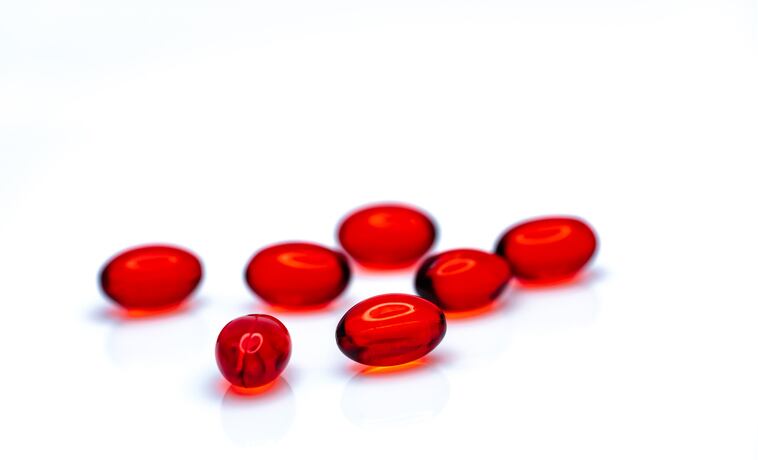Astaxanthin is a carotenoid that can be derived from several natural sources and is most commonly produced by cultivating the algae species Haematococcus pluvialis. The ingredient has also long been available via chemical synthesis, too, and has been used as a feed additive in aquaculture to give the flesh of farm raised salmon and trout an appetizing reddish hue.
Difference between forms
Cultivating algae is neither easy nor cheap. Several producers of the natural form of the ingredient came together to form the Natural Algae Astaxanthin Association (NAXA) to protect what they claim are the unique benefits of their natural form. The argument has been that while the synthetic forms of the ingredient might have the same chemical formula, there are significant sterioisomer differences between the forms. In their view means that the safety and efficacy evidence that has been developed for the natural forms cannot be applied as a matter of course to the synthetic forms.
One of the suppliers of the synthetic form, DSM, had countered that its ingredient, called AstaSana, had gone through a food additive approval process, which provides ample evidence of safety.
The review, published in the latest edition of the journal Phytotherapy Research, was written by Thomas Brendler, PhD, of the New Jersey-based consulting firm Plantaphile, and Elizabeth Mary Williamson, PhD, of the School of Pharmacy at the University of Reading in the UK. The authors reviewed 87 human clinical trials that used astaxanthin. The trials used short term dosages of as much as 100 mg/day, and long term dosages ranging up to 12 mg/day.
The authors also noted that a number of New Dietary Ingredient Notifications have been filed on the carotenoid. These used a variety of dosages up to 24 mg/day.
No adverse events reported
In none of these trials, which collectively included more that 2,000 subjects, were any serious adverse events reported. Nor were any liver toxicity indications found. The authors said the only thing approaching an adverse event observed in these studies was a reddening of the stool at high dosages.
The authors noted that the 87 trials were conducted over a series of years, and varied in quality. They said the wide variations in how the data was reported as well as other issues made it impossible to rank the studies or to develop valid exclusion criteria, so they included them all.
“In general terms, however, it can be said that the more recent randomized clinical trials have been conducted with more scientific rigor than earlier open label and observational trials,” they noted.
“Considering the available regulatory, preclinical, and clinical data, there appear to be no applicable safety concerns for natural AX supplementation at levels of at least 12 mg/day,” the authors concluded.
“Although synthetically produced AX has only demonstrated species-specific effects at very high doses, it must be considered unique and should not be introduced for direct human use (in contrast to animal feed) until safety parameters are established and human clinical trials showing potential benefits have been conducted,” they added.
NAXA, for its part, issued the following statement: “We applaud this new review highlighting natural astaxanthin’s impeccable safety record based on the available regulatory, preclinical and clinical data. We also agree with the authors’ conclusion that synthetic astaxanthin should be avoided for direct human use until human clinical trials showing potential benefits have been conducted.”
Source: Phytotherapy Research
DOI: 10.1002/ptr.6514
Astaxanthin: How much is too much? A safety review
Authors: Brendler T, Williams EM




